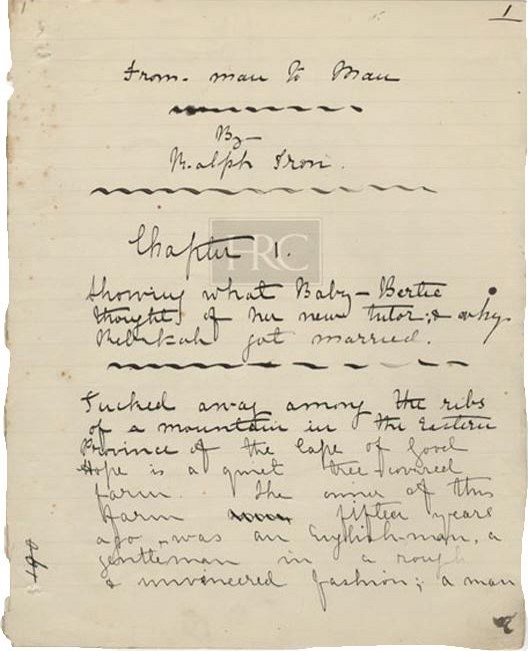The desire to know

‘In 1886–87, while she was staying in Alassio, Italy, deeply engaged in revising From Man to Man, Schreiner sent to her close friend Havelock Ellis parts of what she at that stage thought of as Chapters 1, 4, 5 and 6 of From Man to Man. These drafts have fortunately been preserved as part of the Havelock Ellis Collection in the Harry Ransom Center, University of Texas at Austin.
‘At this time she was still using the pseudonym “Ralph Iron”, which is the name under which The Story of an African Farm was first published. Some readers of African Farm took the author as a man, perhaps spurred also by the weight given Waldo in the novel. However, no reader of From Man to Man would have done the same, and especially not in the early manuscripts where, for instance, Schreiner’s major character, Rebekah, looks back at puberty. Pondering the radical change that took place in her body-and-mind over as little as four months, Rebekah speaks of what she called an “astonishing revolution”: “From being a gentle submissive child” to “one fiercely energetic, with indomitable will”. “I could have fought the world. I feared nothing. I only desired to know.” The “desire to know”, which infuses these early draft chapters, also marks the letters between Schreiner and Ellis. Unlike Schreiner’s husband, Ellis did not destroy this material, which is fortunately preserved as part of the Havelock Ellis Collection in the Harry Ransom Center, University of Texas at Austin.
‘The title of From Man to Man has many possible meanings, but the shift that this title page shows, from “man” to “Man”, suggests yet another: that Schreiner was embedding into the very materiality of the title her strong interest in what Nietzsche and philosophers after him conceptualised as human-becoming — men, or humans in Schreiner’s gender-free and strongly Platonic thinking, striving to achieve their ideal selves. For Schreiner, this ideal precluded any individualism that lost sight of the social good.’ – Dorothy Driver


